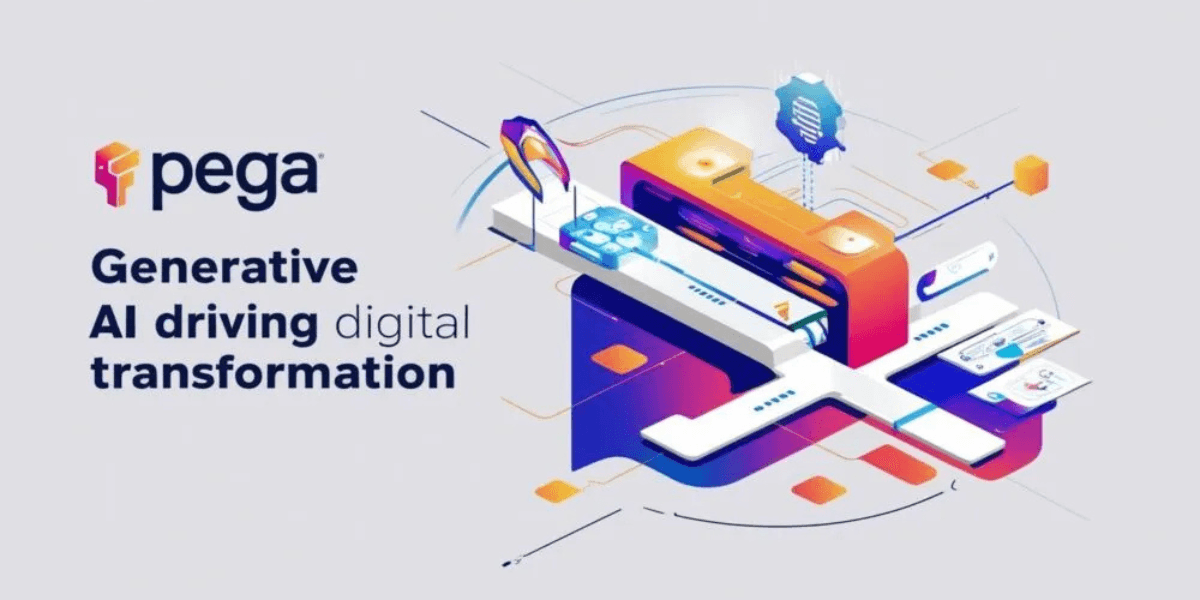Harnessing Pega’s Generative AI for Accelerated Digital Transformation

In an era where digital transformation is at the forefront of organisational growth, leveraging cutting-edge technologies is essential for staying competitive. One of the most transformative innovations in this domain is generative AI, and Pega’s solutions are leading the way. In this blog, we explore how Pega’s generative AI capabilities can revolutionise digital transformation, particularly for enterprises looking to optimise their operations and enhance customer engagement.
The Role of Generative AI in Digital Transformation
Generative AI, an advanced form of artificial intelligence, is redefining how businesses approach automation and customer service. By leveraging machine learning models, generative AI can create content, predict outcomes, and automate complex workflows, significantly reducing manual intervention. This technology not only helps businesses save time but also minimises human errors, leading to more accurate and consistent outcomes.
According to a recent report by AIHW, more than 60% of Australian enterprises are actively investing in AI-driven digital transformation initiatives. This statistic highlights the growing recognition of AI’s potential to enhance operational efficiency and customer satisfaction. Furthermore, the Australian government has been promoting AI adoption across industries, recognising its potential to boost productivity and innovation.
Pega’s Generative AI Innovations
Pega, a leader in business process management, has introduced groundbreaking generative AI tools like Pega GenAI. These tools empower organisations to build intelligent workflows, automate decision-making, and deliver personalised customer experiences. Notably, Pega GenAI’s features, such as the GenAI Knowledge Buddy and GenAI Coach, integrate seamlessly into existing IT infrastructures, making adoption smoother and more efficient.
One remarkable aspect of Pega’s AI-driven approach is its ability to streamline customer service operations. For instance, the GenAI Coach leverages natural language processing to assist customer service representatives in real-time, reducing response times and improving customer satisfaction metrics. Moreover, the AI algorithms continuously learn from interactions, enhancing their ability to provide relevant solutions and support.
Real-World Applications and Success Stories
Industries ranging from finance to healthcare are already seeing the benefits of Pega’s generative AI. For example, a leading Australian financial institution leveraged Pega GenAI to automate its customer inquiry process, reducing handling times by 40% and significantly boosting customer satisfaction. Additionally, the system’s ability to analyse customer queries and provide precise responses improved the overall service quality, helping the institution maintain its competitive edge.
Pega’s AI-powered solutions have been employed in healthcare to optimise patient data management, leading to more efficient care coordination. Additionally, the implementation of generative AI in healthcare has demonstrated the potential to improve diagnostic accuracy and enhance patient outcomes, fostering a more efficient healthcare ecosystem. Hospitals and clinics also use generative AI to automate administrative tasks, allowing healthcare professionals to focus more on patient care.
Pega GenAI in the Public Sector
Government organisations are also harnessing the power of Pega’s generative AI. For instance, local councils in Australia have started integrating Pega GenAI to streamline public service processes, including managing citizen inquiries and automating back-office functions. By doing so, they have improved response times and minimised manual errors, reflecting the versatility of generative AI in public administration.
Moreover, according to a recent study by the Australian Government’s Digital Transformation Agency, the adoption of AI in public services has increased by 30% over the past two years. This data underscores the growing trend of utilising AI-driven solutions to enhance public sector efficiency. Government agencies can manage resources more effectively by adopting generative AI and responding promptly to public needs.
Future Trends in Pega’s Generative AI
As generative AI continues to evolve, Pega is actively enhancing its capabilities to address emerging business challenges. Future updates may include more advanced data analytics, predictive maintenance, and integration with Internet of Things (IoT) devices, enabling even more comprehensive digital transformation. Additionally, Pega is improving AI transparency to ensure organisations can track decision-making processes, fostering greater accountability and trust.
The rise of AI ethics is another area where Pega aims to innovate, ensuring that its AI-driven solutions align with ethical standards and data privacy regulations. This proactive approach makes Pega’s generative AI not just a tool for efficiency but a responsible solution for modern enterprises.
Why Choose Pega’s Generative AI for Your Business?
Embracing Pega’s generative AI solutions offers numerous benefits:
Enhanced Efficiency: Automates routine tasks, freeing up human resources for strategic initiatives.
Improved Customer Experiences: Personalise interactions, leading to higher satisfaction rates.
Data-Driven Insights: Utilises AI-powered analytics for better decision-making.
Scalable Solutions: Easily adapts to changing business needs.
Ethical and Transparent AI: Builds trust through clear decision-making processes.
Final Thoughts
The rapid evolution of digital transformation demands businesses adopt intelligent solutions like Pega’s generative AI. Organisations that embrace these innovations are better positioned to remain competitive in an increasingly digital world. Businesses can ensure sustainable growth and long-term success by staying ahead of the curve and adopting generative AI technologies.